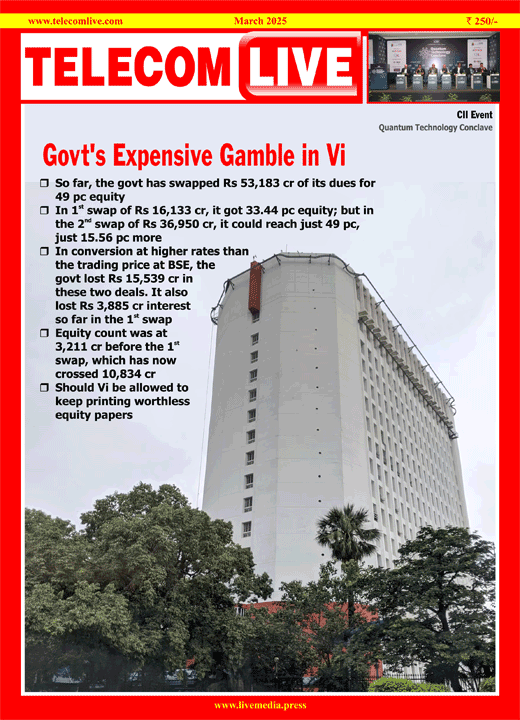Bharti group-backed OneWeb could begin satellite broadband services by Sept
London-based OneWeb has submitted its bid to be the first firm to begin broadband-from-space services in India by September, The Economic Times reported on Tuesday.
The Department of Telecommunications (DoT) has approved setting up two satellite gateways in Mehsana
in Gujarat, and another near Chennai, a company official added. The Bharti group-backed company has been given all in-principle approvals by DoT to deploy satellite ground infrastructure, including the two gateway earth stations in India in the run-up to launching satellite broadband services later this year, a senior company executive was quoted as saying by ET.
For running its gateways, the satellite operator wants to employ the full ‘Ka’ spectrum band – 27.5 to 29.1 GHz and 29.5 to 30 GHz- and for its satellite user access terminals (UATs)in India, it wants to use the 14 Ghz ’Ku’ band.
The firm wants the allocation of these airwaves from the Centre as soon as possible. The executive said the company’s satellite broadband services can begin in India as soon as spectrum in the Ka/Ku bands is allotted, ideally through the administrative route.
For the launch of the satellite service, the method of spectrum allocation is key. While telecom operators Vodafone Idea (Vi) and Reliance Jio want the spectrum to be auctioned, international satellite firms have all backed the administrative route.
OneWeb wrote to Telecom Regulatory Authority of India (Trai) saying interference-free use of the entire ‘Ku’ and ‘Ka’ bands for the UATs and gateways is essential for the success of its operations in India. User experience, network performance, and end-to-end connectivity could be affected by partial access to these airwaves, it said. The UAT is a crucial piece of satellite equipment that is essential to deliver fast broadband services to end users.
The GEN-1 satellite design requires access to the entire ‘Ku’and ‘Ka’ bands for its operations, the firm said. In addition, once the GEN-2 satellites become operational in five years, the full Q/V bands (37.5-52.4 GHz) would also be required.
Currently, OneWeb possesses global mobile personal communications by satellite services (GMPCS) permit, which is required for operating satellite internet services in India. The firm aims to provide high-speed broadband services to people who are currently underserved by conventional broadband solutions, especially in rural areas with limited or zero access to high-speed internet.



